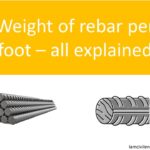With a reverse mortgage, you may use your home’s value to meet short-term cash needs, build an emergency fund, or pursue other ambitions. Borrowers have greater financial freedom through the loan’s flexible repayment terms. Paying your mortgage and property taxes on time is essential throughout the life of your loan, just as it is for any mortgage secured by your house. When applying for a reverse mortgage, what factors are considered? Maybe you’re wondering, like many others, whether a reverse mortgage will work on my house. Let’s find out who is the right candidate for it.
What Is a Reverse Mortgage?
Although widespread knowledge of the phrase “reverse mortgage” exists, not everyone understands the concept or its application. You need to learn about these mortgages and how they work before deciding whether they’re a good fit for your situation.
Those 62 and above may apply for a reverse mortgage loan. In the form of a credit line, these loans provide instantaneous access to funds for any purpose. It’s possible to get the whole sum at once in some instances. It all depends on the details of the case at hand.
The loan would not have to be repaid every month. They must still make a monthly loan payment. Unless the loan balance is due, they are exempt from making reverse mortgage payments.
The Ideal Candidate for a Reverse Mortgage
Even though I will only be discussing three of the most promising candidates, it is essential to remember that reverse mortgages may be made accessible to individuals who do not meet these standards. All of these must be met before you use your home’s equity as a source of emergency money or other financial security. Moreover, you can calculate your reverse mortgage with a reverse mortgage calculator, which consumers can use when shopping for reverse mortgages.
Financial Health and Salary Are Two Key Factors.
Anyone may qualify for a reverse mortgage regardless of income or credit history. This is a key distinction between a reverse mortgage and a traditional home equity loan or line of credit. To tap into their home’s equity, homeowners might take up a home equity line of credit.
Expenses Over the Original Estimate
One of the downsides of reverse mortgages is the high cost. Borrowers are responsible for paying the origination fee and mortgage insurance upfront. Your father may not have to pay any out-of-pocket costs when getting a reverse mortgage since the loan often includes provisions for paying such fees. Whether your father pays the origination charge out of his own cash or uses the equity in the home, it may be rather high.

Payments
Your dad will pay the property taxes and homeowner’s insurance even though these aren’t requirements for a reverse mortgage. If your father cannot keep up with the loan payments or is out of the house for more than a year due to circumstances such as long-term care, he will still be responsible for paying it back.
Age
With a reverse mortgage, seniors may use the home equity as a source of retirement income. Your dad must be 62 years old to apply for a reverse mortgage. Your parents must also be 62 years old if your dad desires to co-borrow with you.
Like Us on Facebook!
Ideally, your dad would own at least half of his house outright. Moreover, he must continue making the home his primary residence throughout and after the reverse mortgage.
Subscribe Us on YouTube!
A Large Mortgage Debt That Has Yet to Be Repaid.
Low-interest rates and manageable monthly payments have prompted many retirees to consider refinancing their homes in recent years. They have, however, started their mortgage payment clock again. A 30-year loan is a popular option for retirees since it reduces the monthly payment. Because of this, many homeowners won’t be able to pay down their debts until the 2040s.
These are all valid concerns that beg the question: why bother keeping up with a mortgage you may never be able to pay off? Paying down the mortgage will enhance your monthly cash flow, and you do not intend to sell the property.
If you are a senior citizen with no plans to sell your home, have a long remaining mortgage term, and do not mind leaving equity to your heirs, a reverse mortgage may be the best choice.
Non-ideal Applicants for a Reverse Mortgage
Those Who Are Careful With Their Money
I don’t wish to seem harsh, but elderly people who lack financial discipline shouldn’t even consider getting a reverse mortgage. Seniors who are not responsible with their money sometimes take out reverse mortgages, making their financial conditions worse.
Those who want to give your children the greatest potential financial inheritance.
To put it simply, a reverse mortgage allows you to borrow against the value of your home. Because of this, the debt load rises while the home’s value falls. A reverse mortgage is not the greatest option for maximizing your family’s inheritance.
Those who are looking to sell in the next several years.
If you intend to sell your home in the next couple of years, you should probably avoid getting a reverse mortgage. If you want to stay in your new house indefinitely, you may apply for a reverse mortgage. Taking up a reverse mortgage might end up being a great investment. It is not meant to be a temporary loan.
People who live with children or disabled relatives in their homes wish to keep them there after they pass away.
The reverse mortgage becomes due when either the last borrower or the non-borrowing spouse has moved out and paid the property costs. If you have people who rely on you financially but are not able to repay a reverse mortgage, such as little children or handicapped relatives, you should avoid getting one.















